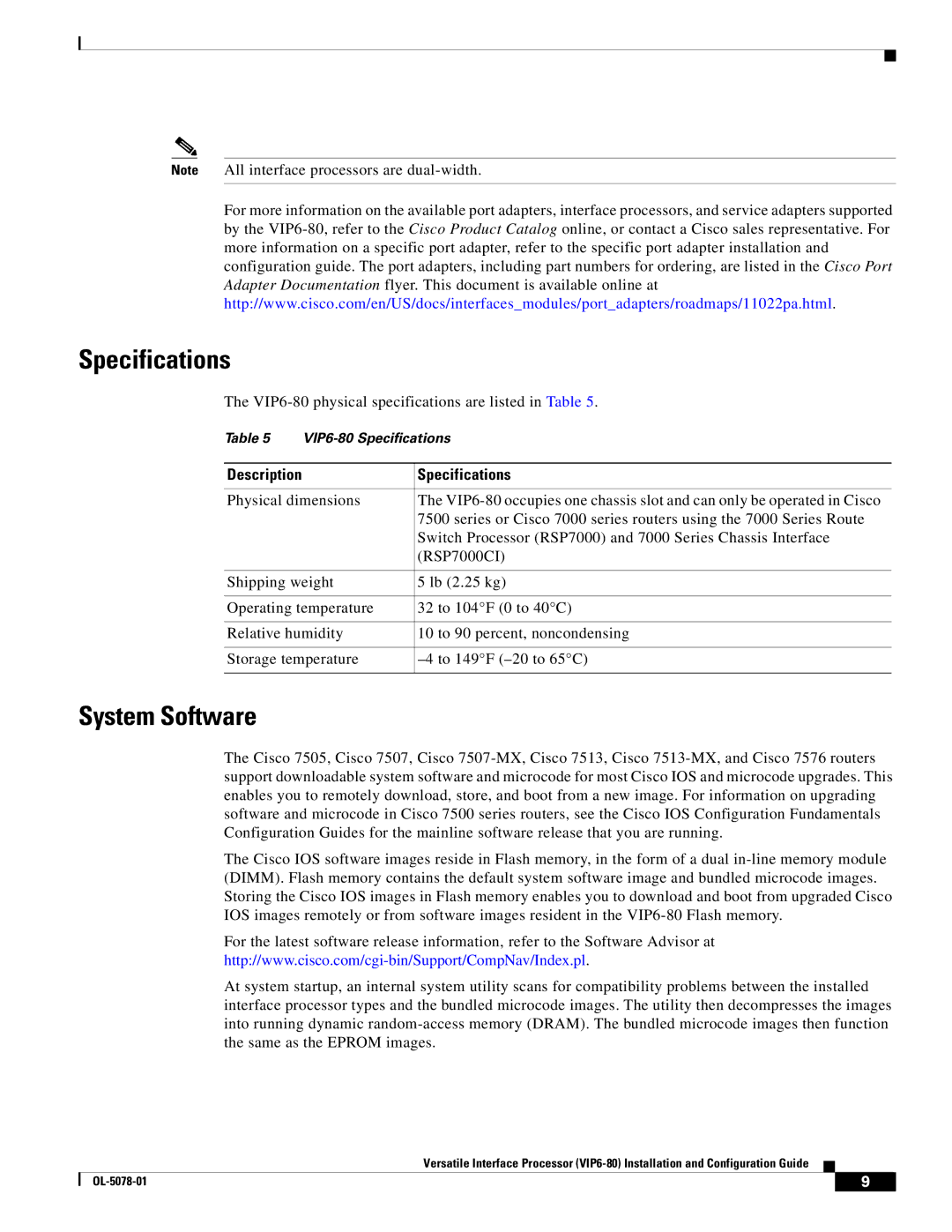Note All interface processors are dual-width.
For more information on the available port adapters, interface processors, and service adapters supported by the VIP6-80, refer to the Cisco Product Catalog online, or contact a Cisco sales representative. For more information on a specific port adapter, refer to the specific port adapter installation and configuration guide. The port adapters, including part numbers for ordering, are listed in the Cisco Port Adapter Documentation flyer. This document is available online at http://www.cisco.com/en/US/docs/interfaces_modules/port_adapters/roadmaps/11022pa.html.
Specifications
The VIP6-80 physical specifications are listed in Table 5.
Table 5 VIP6-80 Specifications
Description | Specifications |
| |
Physical dimensions | The VIP6-80 occupies one chassis slot and can only be operated in Cisco |
| 7500 series or Cisco 7000 series routers using the 7000 Series Route |
| Switch Processor (RSP7000) and 7000 Series Chassis Interface |
| (RSP7000CI) |
| |
Shipping weight | 5 lb (2.25 kg) |
| |
Operating temperature | 32 to 104°F (0 to 40°C) |
| |
Relative humidity | 10 to 90 percent, noncondensing |
| |
Storage temperature | –4 to 149°F (–20 to 65°C) |
| |
System Software
The Cisco 7505, Cisco 7507, Cisco 7507-MX, Cisco 7513, Cisco 7513-MX, and Cisco 7576 routers support downloadable system software and microcode for most Cisco IOS and microcode upgrades. This enables you to remotely download, store, and boot from a new image. For information on upgrading software and microcode in Cisco 7500 series routers, see the Cisco IOS Configuration Fundamentals Configuration Guides for the mainline software release that you are running.
The Cisco IOS software images reside in Flash memory, in the form of a dual in-line memory module (DIMM). Flash memory contains the default system software image and bundled microcode images. Storing the Cisco IOS images in Flash memory enables you to download and boot from upgraded Cisco IOS images remotely or from software images resident in the VIP6-80 Flash memory.
For the latest software release information, refer to the Software Advisor at
http://www.cisco.com/cgi-bin/Support/CompNav/Index.pl.
At system startup, an internal system utility scans for compatibility problems between the installed interface processor types and the bundled microcode images. The utility then decompresses the images into running dynamic random-access memory (DRAM). The bundled microcode images then function the same as the EPROM images.
Versatile Interface Processor (VIP6-80) Installation and Configuration Guide

